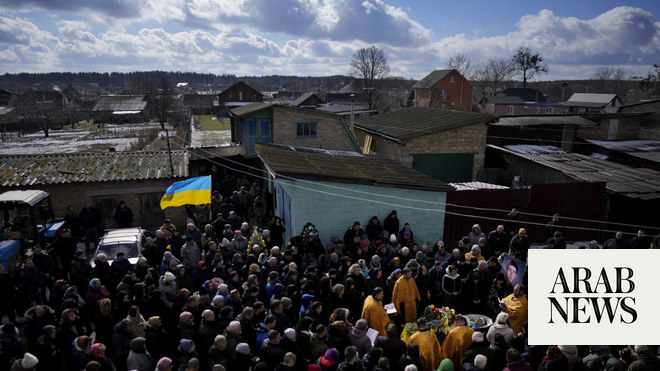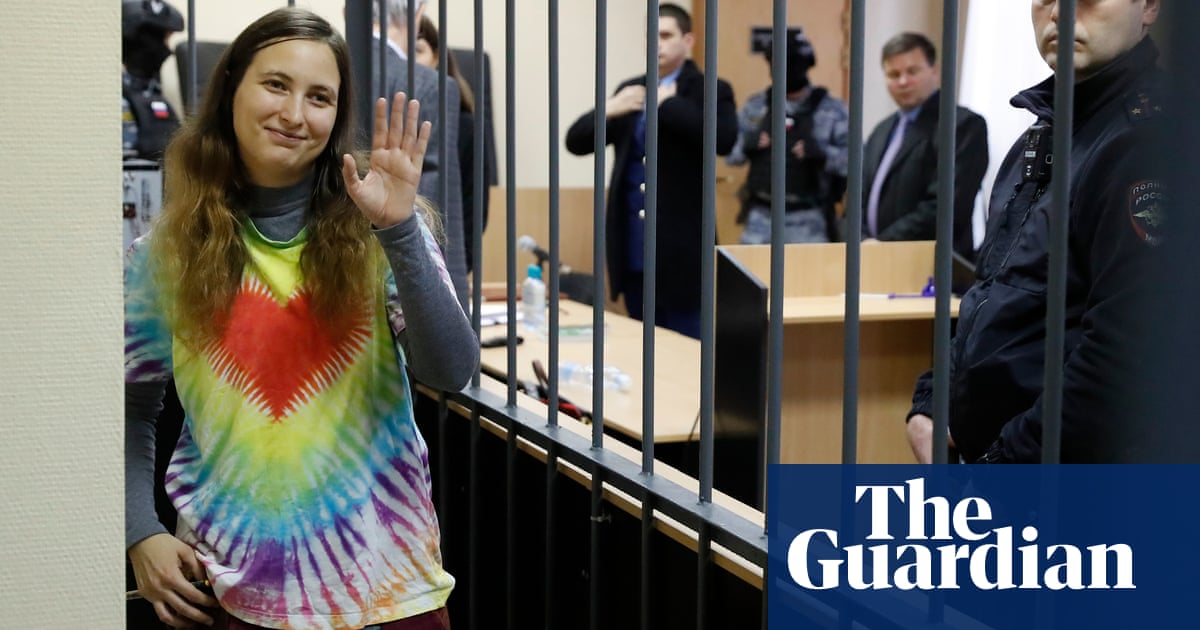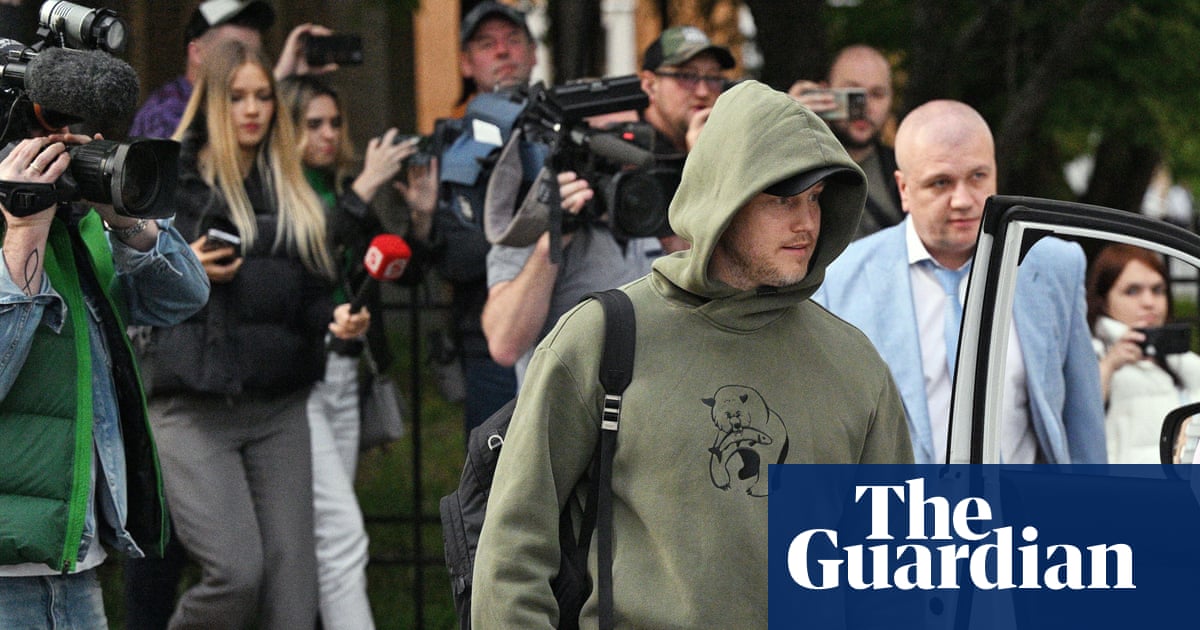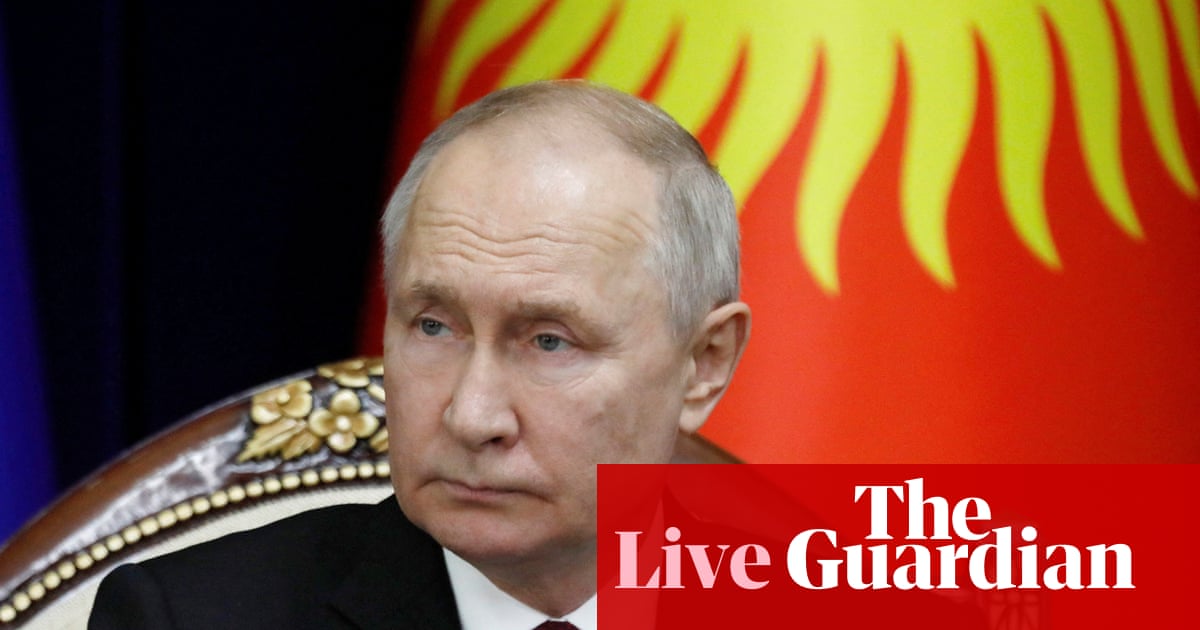
Dmitry Ivanov, 23, was convicted of spreading false information about the Russian army
He was charged over a number of social media posts in his Telegram channel that called Russia"s campaign in Ukraine a “war"
TALLINN, Estonia: A court in Moscow sentenced a student activist to 8 1/2 years in prison for social media posts criticizing Russia’s war in Ukraine, the latest step in a sweeping crackdown on dissent unleashed by the Kremlin.
Dmitry Ivanov, 23, was convicted of spreading false information about the Russian army, which was made a criminal offense under a new law that Russian lawmakers rubber-stamped a week after Moscow sent troops into Ukraine.
The legislation has been used to prosecute individuals who deviate from the government’s official narrative of the conflict that the Kremlin insists on calling “a special military operation.”
Prominent opposition politicians, such as Ilya Yashin, who is serving an 8 1/2 prison term, and Vladimir Kara-Murza, who is in jail awaiting trial, also were charged with spreading false information about the military.
Ivanov was charged over a number of social media posts in his Telegram channel that called Russia’s campaign in Ukraine a “war” and talked about Russian forces attacking civilians and civilian infrastructure in Ukraine, committing war crimes in the Kyiv suburbs of Bucha and Irpin, and targeting the Zaporizhzhia Nuclear Power Plant. Most were reposts from other sources.
At the time of his April 2022 arrest, Ivanov was a student at Lomonosov Moscow State University, one of Russia’s top universities also known as the MSU. He ran a popular Telegram channel called Protest MSU, which was launched in 2018 to cover student protests against the construction next to the university’s main building of a fan zone for the Russia-hosted World Cup soccer tournament.
Ivanov initially was jailed for 10 days on the charge of organizing an unauthorized rally. Authorities jailed him again on the same charge for 25 days, and then he was arrested over the social media posts.
While in custody, the student missed his final exams and failed to submit his final dissertation. He was expelled from the university.
During Ivanov’s trial, in an unusual twist the court approved a defense request to subpoena Russian Foreign Minister Sergey Lavrov, Russian Defense Ministry spokesman Igor Konashenkov and Russia’s ambassador to the UN, Vasily Nebenzya.
Ivanov’s lawyers argued that since the authorities had used the officials’ statements to prove that Ivanov’s social media posts contained false information, they should be deposed in court.
However, neither of the three complied with the subpoenas to appear in court.
In his final address to the court last week, Ivanov rejected the charges against him as “looking absurd” and said the crime he was prosecuted for “shouldn’t exist at all.”
“The investigation, in trying to accuse me of spreading ‘fakes,’ has built one big fake (itself). Literally the entire indictment, from the first to the very last word, contradicts the reality,” Ivanov said. “I, in the meantime, stand by every word I wrote a year ago.”












